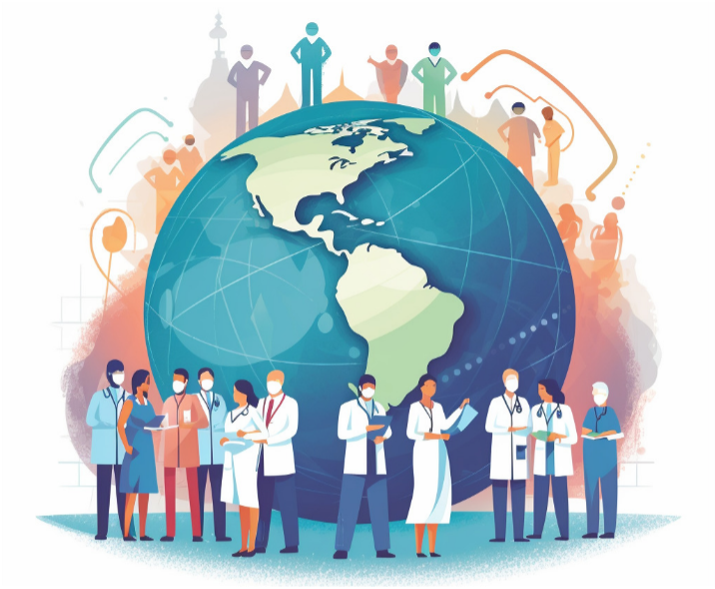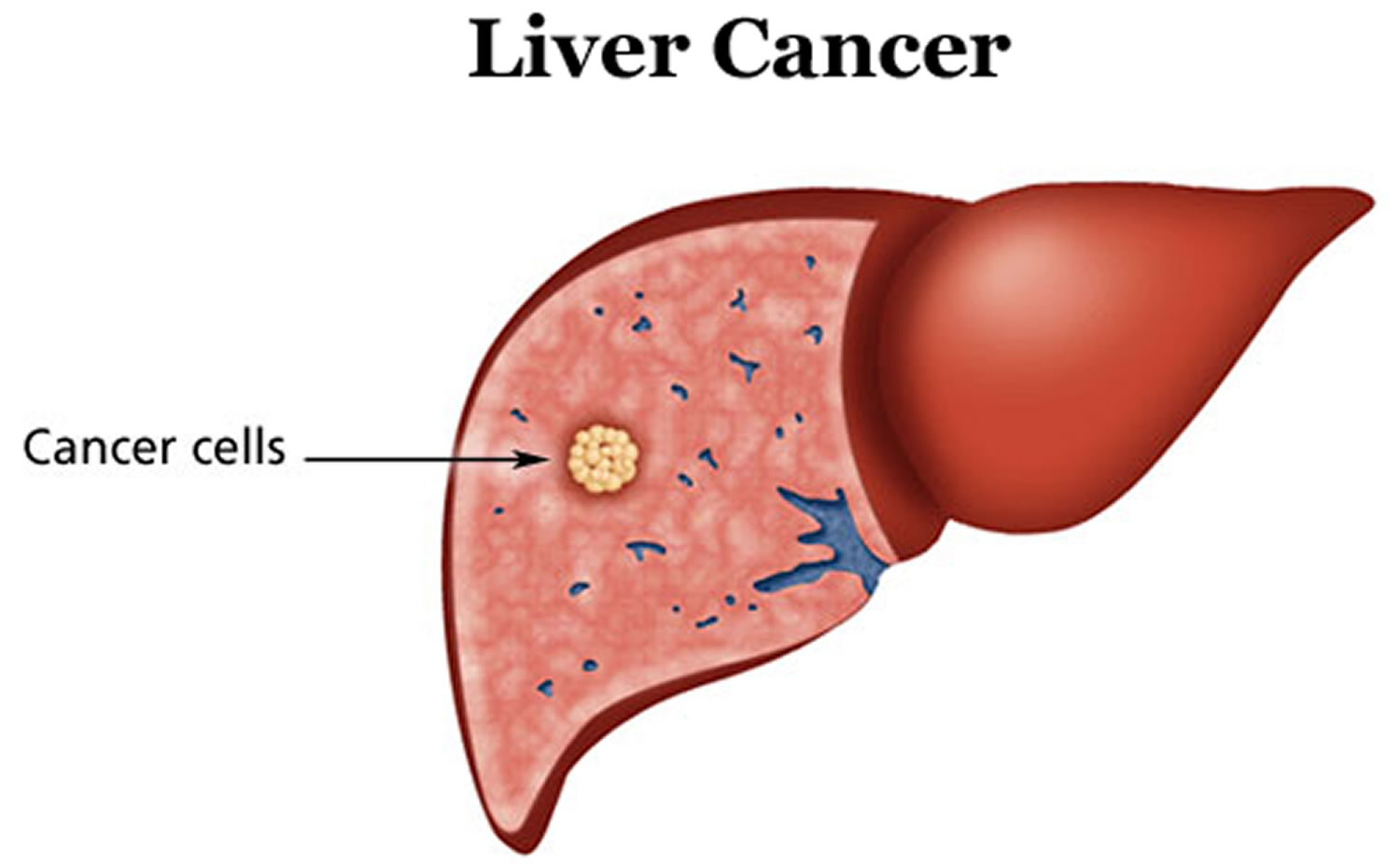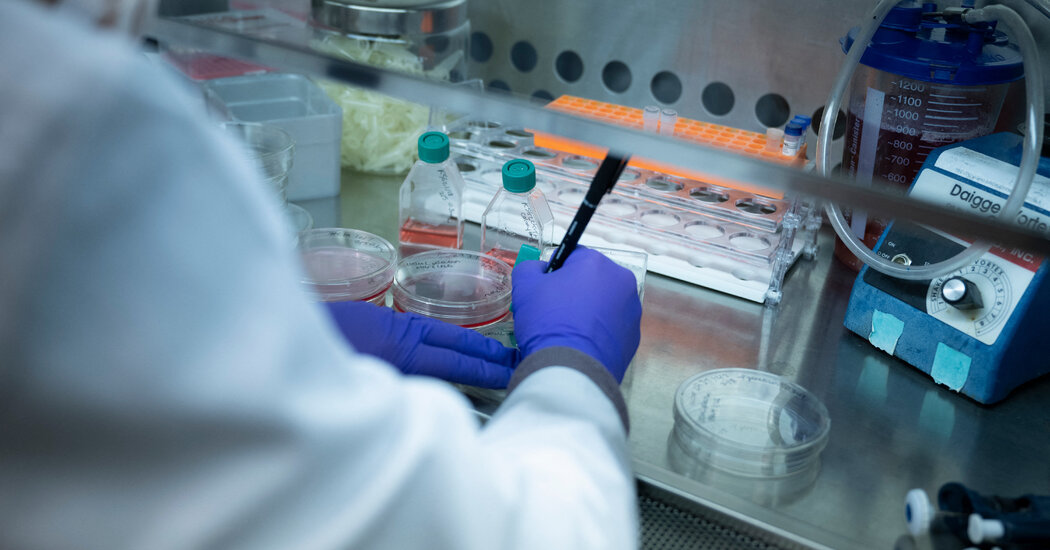Global health is a critical and pressing concern that encompasses the health status of populations worldwide. As highlighted by Atul Gawande, former leader at USAID, the recent dismantling of health infrastructure has sparked alarming gaps in global health execution and support. USAID programs were integral in combating diseases and improving healthcare outcomes across diverse regions, but the current crisis threatens to undermine years of progress. With challenges like COVID-19 research intensifying, it is vital that global health leadership rises to tackle these issues head-on. The stakes are high, and a concerted effort to reinvigorate health systems is essential for the well-being of millions.
The concept of worldwide well-being involves more than just the absence of disease; it embodies the collective health status of the global community. With insights from health experts like Atul Gawande, we see how essential organizations, such as the United States Agency for International Development, have historically played a role in shaping health outcomes through their programs. Yet, the recent cuts to health funding pose significant risks to the robustness of healthcare systems everywhere. Furthermore, groundbreaking scientific research, including COVID-19 studies, is vital for understanding and addressing the evolving health landscape. Hence, the necessity for strong global health collaboration has never been more urgent.
The Importance of Restructuring Health Infrastructure
Atul Gawande’s stark observations on the dismantling of the U.S. Agency for International Development (USAID) underscore a critical need for rebuilding health infrastructure. The past few years have shown how fragile our health systems can be, especially highlighted during the COVID-19 pandemic. With substantial cuts to health programs, research, and staff, the ramifications are not just domestic but of a global nature impacting millions worldwide. A robust health infrastructure is essential for early disease detection, rapid response capabilities, and comprehensive health services that cater to vulnerable populations.
Moreover, the ripple effects of inadequate health infrastructure are evident in the growing inequalities in health outcomes across different regions. For instance, preventive health measures that once saw success through organizations like USAID now face jeopardy without proper funding and support. Gawande’s call for action reflects a pressing necessity for investment and strategic planning in health systems that prioritize accessibility and sustainability to avert future health crises that may stem from such voids.
USAID Programs: A Foundation for Global Health Leadership
USAID’s efforts in global health have historically been paramount in combating diseases and improving healthcare access in low-resource settings. Programs developed under USAID have played integral roles in reducing maternal and child mortality rates, providing essential interventions in areas prone to infectious disease outbreaks. The termination of over 85% of these programs represents not just a loss of funding, but a potential surge in preventable deaths and diseases—challenges that require urgent attention to rescue the public health landscape.
Gawande emphasizes that while the path to restoring these programs may appear daunting, the commitment to global health leadership must remain resolute. Partnerships with local governments, NGOs, and research institutions should be harnessed to innovate and implement effective health initiatives worldwide. Continuing education and infrastructure enhancements lie at the heart of these efforts, as they are necessary to ensure that vulnerable communities can withstand health challenges and thrive in their overall wellbeing.
The Impact of COVID-19 Research on Future Health Policies
The COVID-19 pandemic has not only exposed gaps in health systems but has also provided invaluable lessons that can shape future health policies. Research conducted during this global health crisis has revealed the importance of agile and responsive health strategies, which can be effectively implemented through enhanced health infrastructure. Gawande’s remarks about the critical nature of federally supported health research highlight the necessity for ongoing funding in scientific inquiry that informs public health decisions and interventions.
As nations strive to recover from the pandemic’s ramifications, it is imperative that research efforts related to COVID-19 lead to actionable policies that mitigate future outbreaks. Investing in diverse research areas, including epidemiology and health equity, will bolster our preparedness for the next health threat. Strengthening the collaboration between agencies like USAID and local health entities remains essential in shaping an adaptive health system capable of responding to emerging infectious diseases in real-time.
Atul Gawande: Leadership in Global Health Dynamics
Atul Gawande has emerged as a pivotal figure in global health discussions, leveraging his empirical experiences at USAID to advocate for essential reforms in health leadership. His perspective on health workforce, infrastructure, and access to care resonates within the academic and public health communities, encouraging a united front against ongoing challenges. In moments of crisis, such as the pandemic, Gawande articulates the fundamental importance of informed leadership that is adaptive and driven by scientific rigor.
Leadership in global health involves not just strategic vision but also the commitment to equitable practices that consider the needs of the most vulnerable populations. Gawande emphasizes the long-term vision necessary for sustainable health outcomes, advocating for a shared responsibility among health professionals, policymakers, and communities to address disparities at every level. By inspiring new generations of health leaders, Gawande fosters hope for a future where everyone has access to quality healthcare, regardless of their circumstances.
Resilience in the Face of Health Crises
The ability to remain resilient in the wake of health crises is paramount, as highlighted by Gawande’s reflections on USAID’s challenges. The devastation caused by neglecting health infrastructure demonstrates that capacity-building and preparedness must be prioritized to ensure that health systems can withstand shocks. Strong coordination among health sectors and a commitment to science and data-driven policies empower communities to bounce back from adversities like pandemics.
Moreover, resilience is cultivated through continuous investment in training healthcare providers, developing community health programs, and maintaining robust supply chains for essential medicines. Gawande’s passionate plea indicates that collective action—both locally and globally—will play a key role in forging a path forward that embraces equity and solidarity. The resilience of our health systems will ultimately determine how effectively we navigate future uncertainties.
Building Global Partnerships for Better Health Outcomes
Establishing collaborative partnerships is essential to advance global health goals, as articulated in Gawande’s perspective on international health efforts. Collaborations with organizations, such as WHO and various NGOs, can enhance service delivery and ensure that health interventions are responsive to the context-specific challenges faced by communities. This collaborative approach not only strengthens existing programs but can create innovative solutions to persistent global health issues.
In fostering partnerships, experience sharing becomes invaluable—countries, regardless of their economic stature, can learn from one another’s successes and struggles. Gawande’s experience emphasizes that mutual support and learning networks can accelerate progress while addressing health disparities effectively. By aligning the objectives of international health organizations with local needs, we can pave the way for more impactful health initiatives that culminate in long-lasting improvements in health outcomes.
Innovation in Healthcare Delivery Systems
Innovation plays a crucial role in healthcare, particularly in the design and implementation of delivery systems that cater to diverse populations. Gawande’s advocacy for innovative treatment methods, such as the affordable postpartum hemorrhage treatment package, illustrates how creative solutions are essential to minimize preventable health issues. By harnessing technology and evidence-based practices, we can improve access to essential services, especially in resource-limited settings.
The challenge lies in ensuring that such innovations are scalable and sustainable over time. Policymakers and health organizations must work collaboratively to identify best practices, harness local expertise, and invest in research that continuously improves the delivery of healthcare. Gawande’s vision inspires a future where innovation is not just about technology but about creating cohesive health systems that prioritize long-term health outcomes and adapt effectively to changing circumstances.
The Role of Education in Promoting Public Health
Education serves as a fundamental pillar in advancing public health, an aspect championed by Gawande in his advocacy for continued learning amidst health crises. By equipping healthcare provider and community members with knowledge and skills, we empower them to make informed health choices that can profoundly impact populations’ overall well-being. Educational initiatives that focus on health literacy can significantly influence adherence to treatment protocols and vaccination efforts, as discussed in Gawande’s observations about the vaccine rollout.
The integration of public health education across various levels—from local communities to higher education institutions—can foster a culture of health awareness and proactive engagement. Building educational programs that emphasize evidence-based practices will ensure that emerging health professionals are prepared to tackle the challenges of tomorrow. Gawande’s insights highlight that empowering individuals through education is vital for advancing public health and fostering resilience within communities.
The Future of Global Health in a Changing Landscape
Gawande’s reflections on the shifting dynamics in global health emphasize the urgency of re-evaluating the path forward. As the landscape of health crises continues to evolve, driven by factors like climate change and urbanization, global health leaders must be proactive in addressing these emerging threats. The lessons learned from recent crises should serve as a catalyst for strengthening health systems and ensuring equitable access to care across all populations.
Looking ahead, global partnerships, innovative solutions, and a renewed commitment to science will be crucial. Gawande’s insistence on collaboration speaks to the potential for collective impact through concerted efforts. By embracing an adaptive and forward-thinking approach, we can better position ourselves to meet the challenges of the future, ensuring that global health leadership remains a priority in addressing health inequalities and enhancing the quality of life for all.
Frequently Asked Questions
What is the impact of USAID programs on global health initiatives?
USAID programs play a critical role in global health initiatives, benefiting millions worldwide. Under Gawande’s leadership, USAID established a robust 50-country network that effectively surveils and responds to deadly diseases, cutting emergency response times from weeks to days. These programs have been instrumental in enhancing maternal and child health, improving access to life-saving treatments, and fighting infectious diseases like HIV, tuberculosis, and malaria.
How has Atul Gawande contributed to global health leadership?
Atul Gawande has significantly influenced global health leadership through his work with USAID and as a respected surgeon and author. His initiatives at USAID improved health and science infrastructures, which helped to save lives globally. Gawande’s advocacy for evidence-based practices and innovative solutions demonstrates a commitment to enhancing health systems, making him a notable figure in the conversation about global health.
What challenges does global health face following recent changes in health infrastructure?
Recent changes, including substantial cuts to USAID programs and staffing, pose serious challenges for global health. This dismantling of health infrastructure threatens crucial health initiatives aimed at reducing maternal and child mortality and combating infectious diseases. The easing of funding and support can lead to detrimental health outcomes in vulnerable populations that rely on these services.
How has COVID-19 research influenced global health strategies?
COVID-19 research has profoundly impacted global health strategies by highlighting the need for rapid response capabilities and robust health infrastructure. Lessons learned from the pandemic underscore the importance of vaccination and public health preparedness, pushing global health organizations, including USAID, to adapt and enhance their programs in response to emerging health threats.
What solutions are being implemented to improve global health outcomes?
To improve global health outcomes, innovative solutions such as novel treatment packages for severe hemorrhaging and extensive vaccination drives are being implemented. Organizations like USAID focus on providing technical assistance and ensuring follow-through in health initiatives, ultimately striving to raise vaccination rates and improve healthcare access globally. These strategic interventions are crucial in mitigating health crises and enhancing resilience.
| Key Point | Details |
|---|---|
| Impact of USAID Cuts | The dismantling of USAID has impacted millions globally, reducing the agency’s capabilities significantly. |
| Global Health Infrastructure | Gawande emphasizes the importance of preserving the health and science infrastructure even after major cuts. |
| Emergency Response Improvement | USAID previously reduced emergency response times for global health crises from weeks to under 48 hours. |
| Maternal and Child Health Programs | Programs established by USAID have saved millions of lives and improved health outcomes. |
| Hope for Future | Despite current challenges, Gawande remains optimistic about the future of global health leadership. |
Summary
Global health faces significant challenges, especially in light of recent cuts to key institutions like USAID, which has severely diminished its ability to respond to health crises effectively. Atul Gawande’s insights underscore the necessity of preserving health infrastructure to build resilience against future global health threats. As potential leaders in global health may emerge in response to the U.S.’s waning role, the commitment to patient care and scientific advancement must remain a priority for all.



